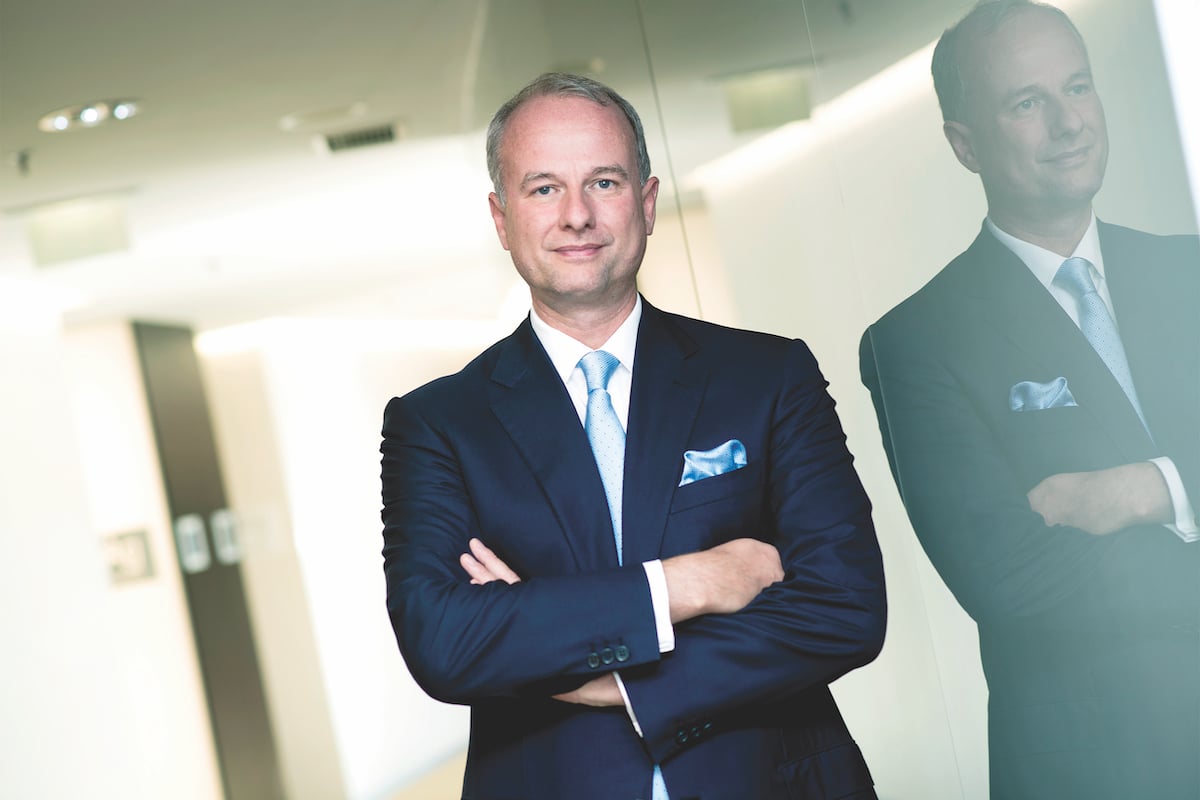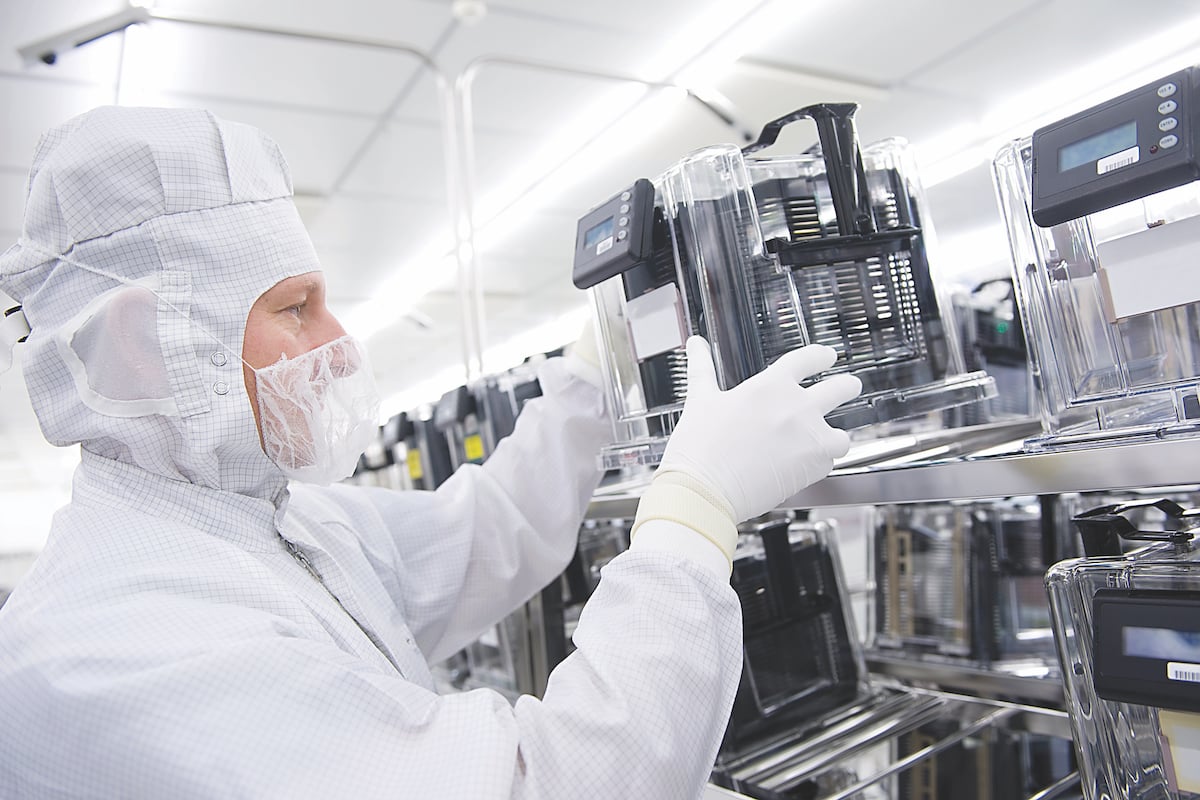Making bold moves: Alexander Everke
It’s been more than two years since CEO of AMS Alexander Everke last spoke with The CEO Magazine. Here he shares what changes have happened in the semiconductor business during that time.
To be successful in the technology industry, CEO of AMS Alexander Everke believes you need to invest in the correct innovations.

"Make the right portfolio choices, make bold investments and really go for it," he says. "When you invest in something because you’re convinced it’s the right area, it usually turns into a huge success."
AMS develops sensor and semiconductor solutions for a wide range of sectors. Since Alexander last spoke with The CEO Magazine in 2017, AMS has increased its workforce and acquired companies, including laser manufacturer and facial-recognition firm KeyLemon and finalised the Princeton Optronics acquisition.
Alexander highlights that growing a company purely from a revenue standpoint isn’t the best option. Instead, what AMS looks for when it comes to acquisitions are technologies that can enhance its portfolio.
"By having better and broader technology, you can grow the company faster," Alexander says. "If you buy a company just to grow market share, you build competing teams within your business."
"If you buy a company just to grow market share, you build competing teams within your business."
Alexander believes in purchasing companies that develop complementary technologies. He says engineers within AMS are excited to access technology they didn’t have from another company, and vice versa. "You create much less friction and culture challenges than buying more of the same business," he adds.
Alexander values the company’s engineers. He says AMS is kept alive because of its engineers’ ability to create the technology. "If you don’t have long-term engineers at the company, you can never be successful." He adds that building relationships happens through communication, having the right culture and recognising each worker’s performance.
"Say thank you on a regular basis and verify why. That is the best way to keep employees for the long-term. It creates better technology than continuously changing people. Of course, if you’re growing, you have to add a lot of people, but you don’t want to lose good employees, especially not in the engineering space."

Engineering is just one facet of AMS; the other crucial factor is knowing what the customers want. "The best solutions take the competencies of engineers and align them with the customers’ requirements," Alexander explains.
"It goes both ways. Listen to the customer, but be very transparent and show what you can do as well. By doing this, you’ll create an application that didn’t exist before."
When it comes to the company’s suppliers, Alexander believes in the value of sharing and outsourcing. He explains AMS’s manufacturing strategy is: ‘If there’s no-one who can manufacture it, then we do it ourselves.’
"If there are other companies who can manufacture certain technologies equally well, or better, we have no intention of doing it in-house," Alexander adds. "We want to outsource it, share things with partners and focus on investments and technologies that don’t exist today.
"The relationships we have with our foundry, silicon, packaging and component partners are so important. We understand we cannot do this alone. We can only accomplish this in close partnerships and it has to be long-term, because this is a two-way investment – not only in terms of money, but also in relationships."
Over the past two years, AMS has broadened the scope of its sensor technology. It has expanded its reach into the non-mobile space, with a major focus on the automotive sector, developing exciting technology such as solid-state LiDAR capabilities and new optical and 3D sensing in cars.
The optical sensors will be able to use facial-recognition technology to identify the driver both for safety and convenience purposes – the car can identify who is sitting in the driver or passenger seat and adjust the seat, mirrors and other settings to their pre-saved preferences.
"If you look a few years ahead and assume car-sharing will be more prevalent and people will be changing their car several times a day, each time you’d have to adjust your car to your own needs, which can be cumbersome," Alexander says.
"But with this sensor technology, you can use face ID and your settings will be programmed when you enter the car. So basically, you don’t feel as if you are driving a different car."
AMS focuses on three main business areas: optical, audio and imaging sensors. The company has streamlined its scope with the recent announcement of its intent to create a joint venture with Wise Road Capital in the environmental sensor area.
That joint venture is expected to go live in the coming months. "A few things have changed in the past three years, and this is a logical way forward," says Alexander.
At a broader level, AMS is focusing on more sustainable profitability in the future. For Alexander, that means having a continuous growth plan and an improved probability plan for the company, ensuring that when major changes in the market happen, the company will not run into jeopardy.
"There is a lot of uncertainty currently in the market. But I want the company to continue to grow and improve its profits," he says. "To achieve this, you shouldn’t place all your eggs in the same basket. You should diversify."
Alexander adds that diversification requires courage, especially when entering the automotive space. "We need to invest significantly in research and design for the automotive sector, which we will recognise in three to four years," he says. "We have to do it today. If we don’t, it will never happen."
Proudly supported by: